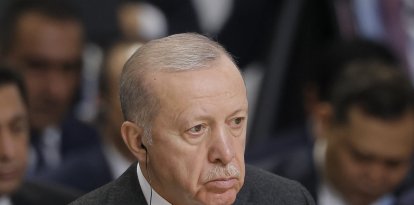The Ukrainian conquest of Kursk
Ukraine now has under its control a thousand square kilometers and more than seventy localities.

Road sign leading to Kursk, Russia.
About a week ago, the Ukrainian army launched a cross-border military operation in Russia's Kursk region. Russia has so far been unable to stop it.
According to some reports, the Kiev forces continue to gain ground in that oblast, without committing the atrocities that have characterized all Russian conquests across the border and in the face of the general indifference already shown by the Russian population during the Prigozhin uprising.
The apathy that this society is showing in the face of a war which is as criminal for Russia as it is for Ukraine, if we leave aside the question of moral responsibility and count the dead, seems to be proof of the Russian tendency towards irresponsibility and lambasting that the Ukrainians insist on so much.
After several days of silence, President Zelenski has reported what is happening in Kursk. Ukraine has under its control at the moment a thousand square kilometers and more than seventy localities.
Beyond the influence the operation will have on the general course of the war, the Ukrainian seizure of part of Kursk again demonstrates the competence, boldness and determination of the Ukrainians. With Russia vastly superior in attacking troops on almost the entire front, the only obvious choice for Ukraine was to continue to resist and pray to drain the enemy's resources by weakening them as much as possible with specific asymmetric warfare operations.

Mundo
Rusia declara el estado de emergencia en Belgorod por los ataques ucranianos
Juan Carlos Téllez
By opening a new front inside Russia, Kiev is regaining the initiative it has been denied from the beginning by the West's desperate fearfulness. Russia has already had to commit to the defense of the oblast troops it was using to gain territory in Ukraine. There has also been talk of possible similar Ukrainian operations in other border oblasts such as Belgorod, and the possibility forces Putin to allocate more resources to border defense.
The setback for Russia from Kursk could be large enough to tip the conflict, or it might not. If nothing changes on the front lines (and the Ukrainian Army manages to maintain or increase the chunk of territory it has under its control in Russia), Kiev will move toward the inevitable negotiations with something to offer the Kremlin in exchange for taking back a part of Russian-occupied Ukraine.
The biggest obstacle to starting negotiations so far was that Russia has no incentive to give in, and the current White House is incapable of formulating credible threats that would push concessions to the enemy.
However small, a swap of territories between the two sides improves Ukraine's position in the picture of peace to be painted. The Kursk operation also sends a message that the Kremlin will take note of in the future: any aggression against Ukraine will bring war to Russia as well, as the following anecdote illustrates.
Before the war, a foreign service company was working from one of the territories in southern Russia that are now occupied. All Ukrainian employees left for Kiev-controlled Ukraine or to countries in Europe. With the exception of one, who left for Kursk.
In the company's chat, employees have to report the breaks they take for lunch, due to indisposition or any other cause. Employees who have stayed in Ukraine also sometimes wrote 'relocation', the term chosen to describe moving to an air raid shelter in the event of a bombing alert. For the first time since the beginning of the invasion, the employee who had taken refuge in Kursk was the one who wrote 'relocation', which provoked an almost euphoric reaction from his colleagues in Ukraine. Wars are also won with these small victories.
One last note about Kursk. It is, as I said before, one more demonstration of character from Ukraine, which for many reasons conservatives who believe in a vibrant, proud and strong free world benefit from having on our team.


























